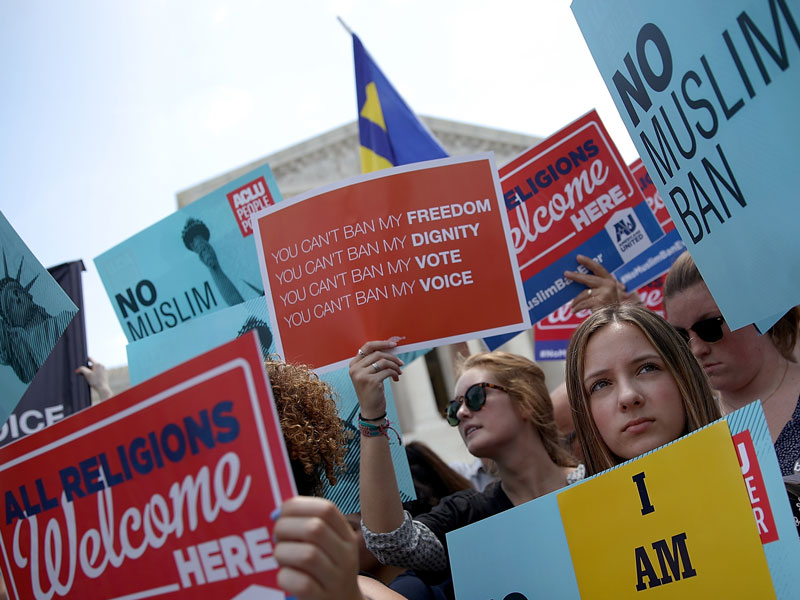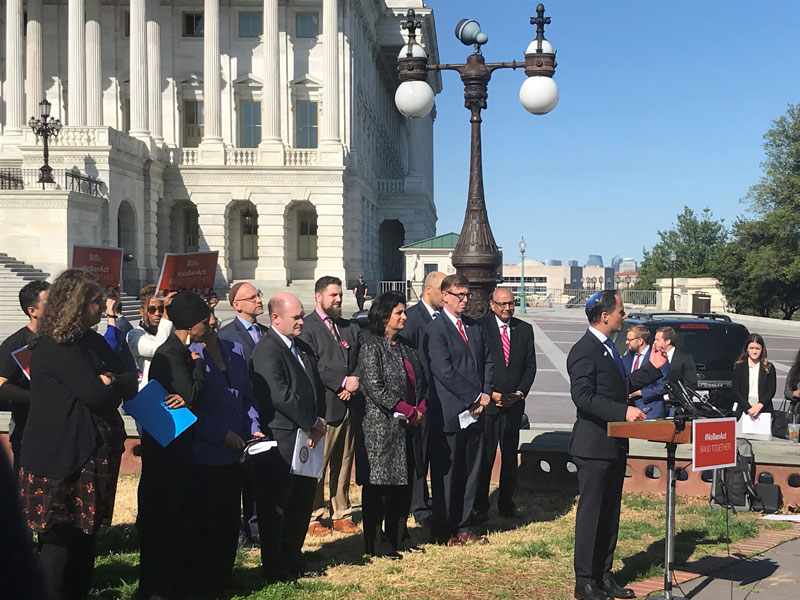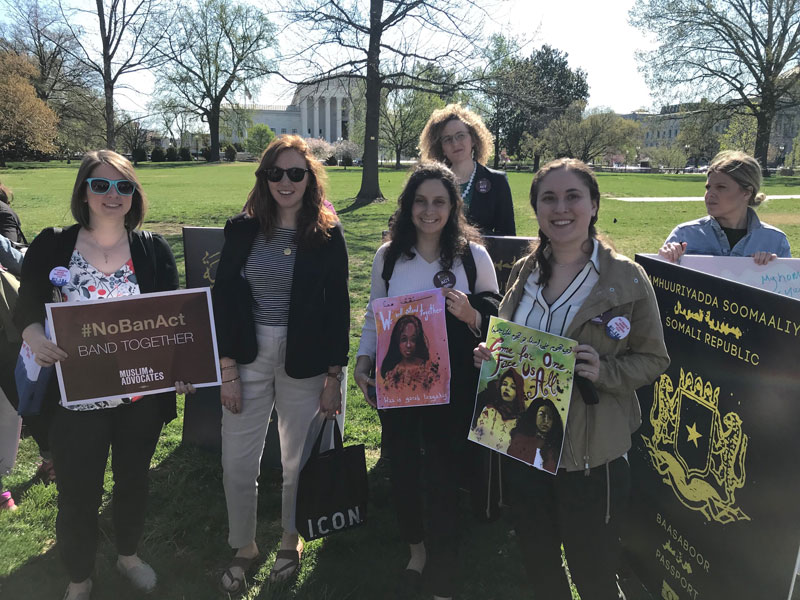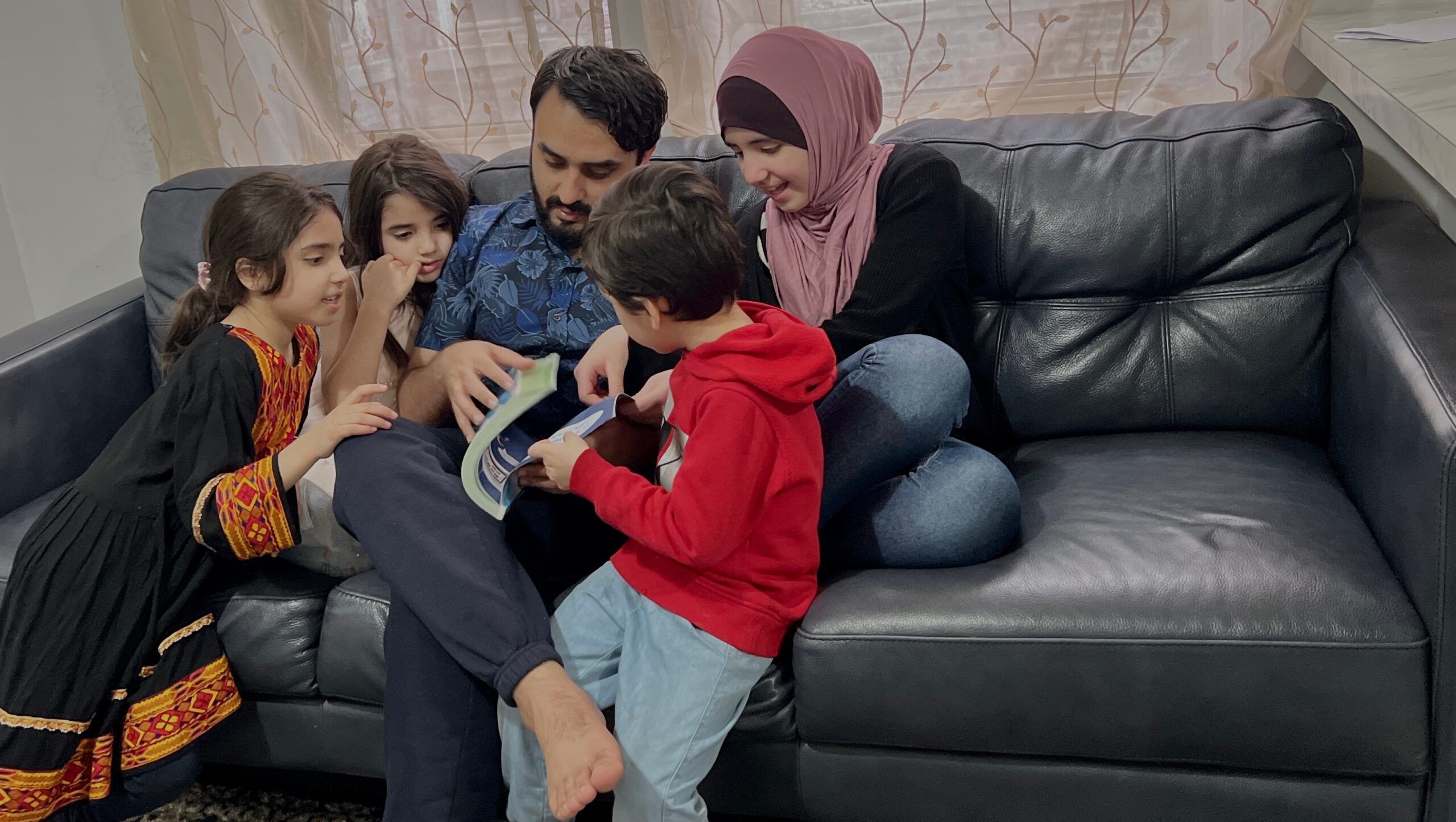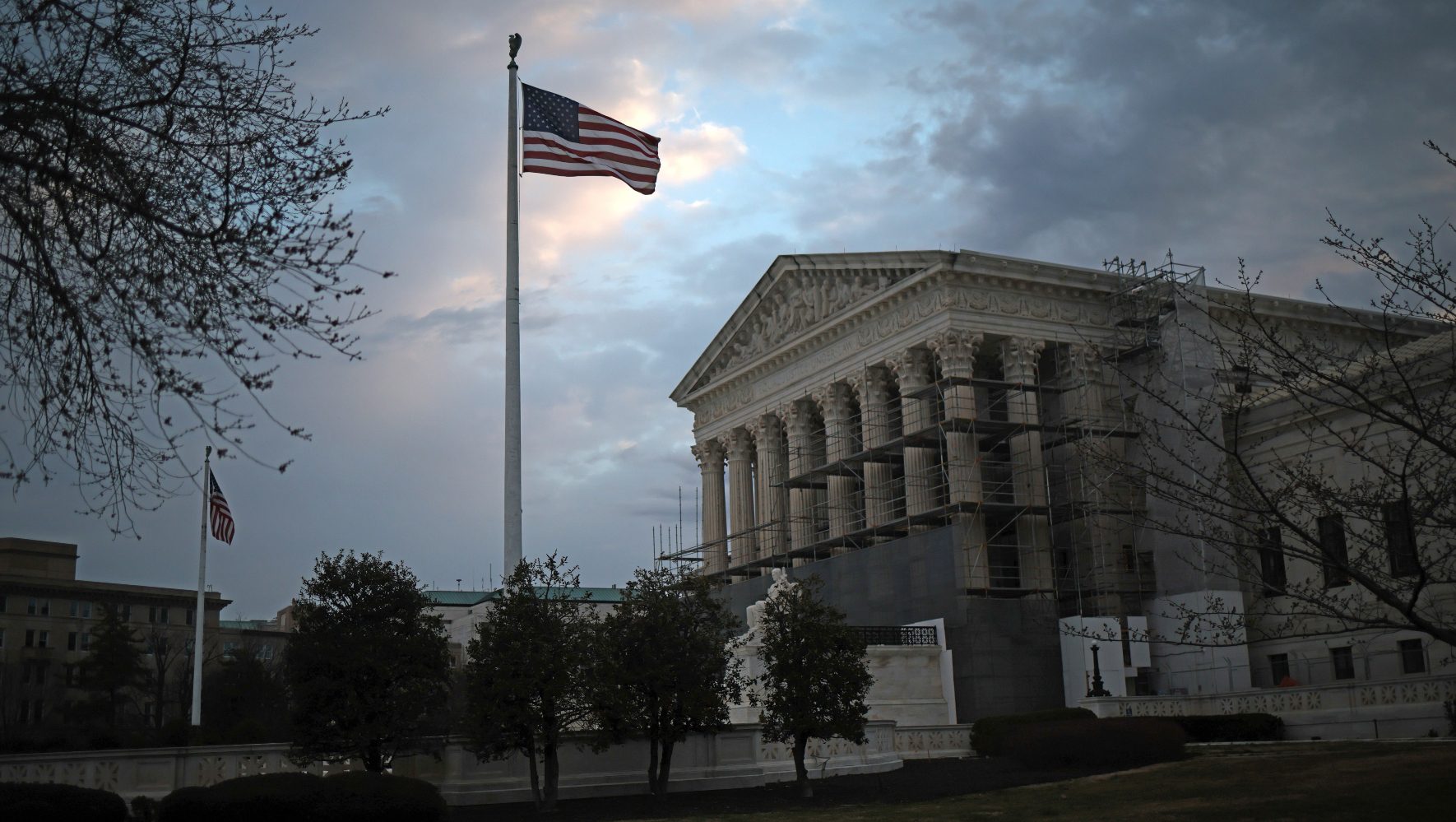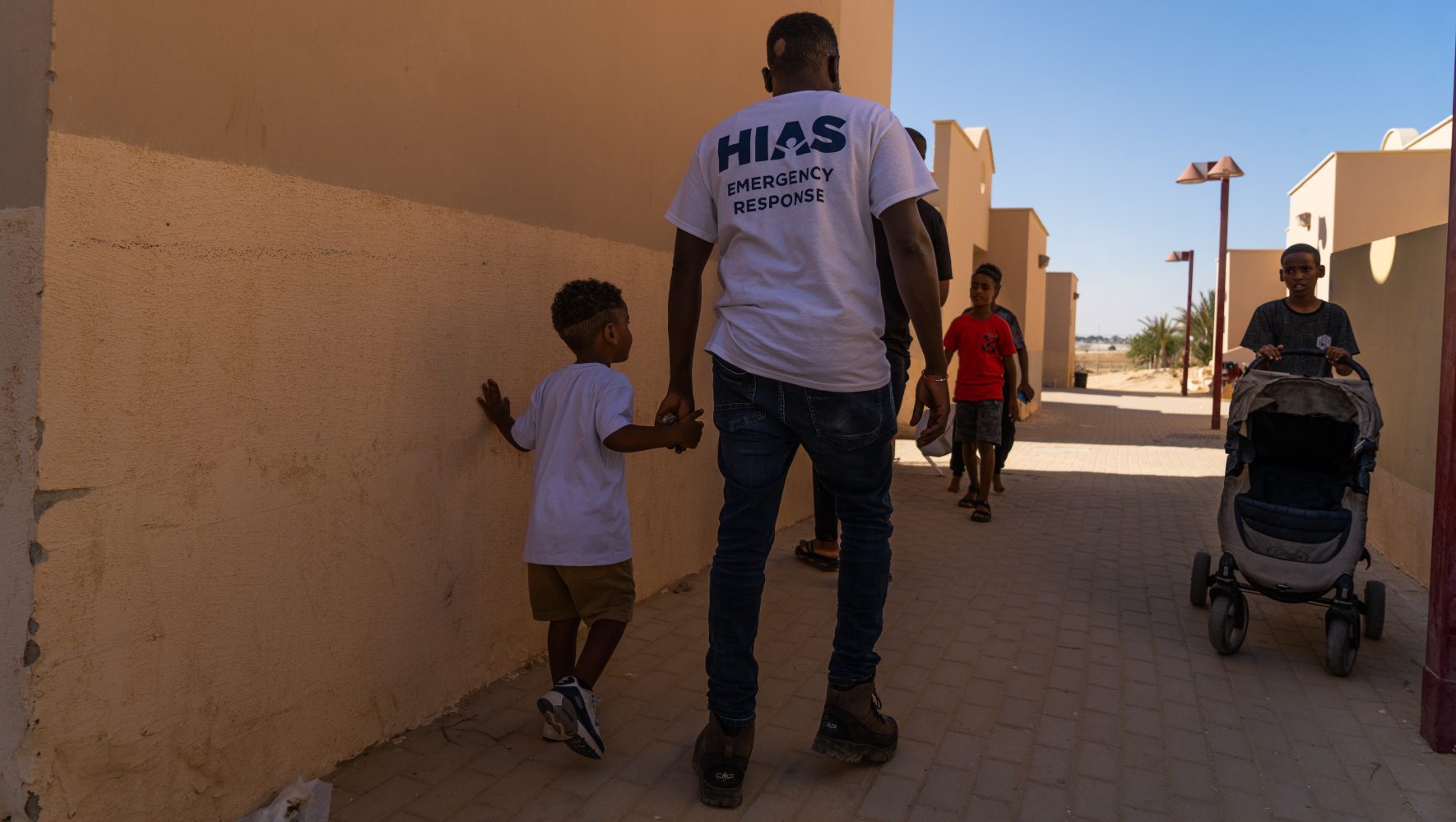Democrats Try to Repeal Muslim, Refugee, and Asylum Bans
By Sharon Samber, HIAS.org
Apr 11, 2019
After two years of bans prohibiting certain populations from entering the country, some members of Congress introduced legislation yesterday to put an end to this type of discrimination and instead focus on an important concept: welcoming the stranger.
The No Ban Act attempts to redress the wrongs those groups targeted by the Trump administration–Muslims, refugees, and asylum seekers–have experienced. The bill would repeal all versions of the bans authorized through executive order and it also will amend the Immigration and Nationality Act (INA) to prohibit discrimination based on religion in the future.
Leading the fight are Senator Chris Coons (D-Del.) and Representative Judy Chu (D-Calif.), who introduced the bicameral legislation Wednesday outside the U.S. Capitol where over 100 people gathered–including HIAS staff–to show support for the bill.
HIAS coordinated a special Jewish organization letter to urge support for No Ban Act.
“We stand in solidarity with our Muslim neighbors, and in support of refugees and asylum seekers from around the world,” the letter from 18 Jewish organizations said. “As American Jews, we are proud of our country’s legacy as a place that welcomes people who are forced to flee their homelands in search of safety.”
HIAS also signed on to another letter of support of nearly 400 organizations, led by the national civil rights group Muslim Advocates.
The five bans have all relied on broad provisions in the INA that have been abused to discriminate on the basis of religion, nationality, and in some cases, against those simply seeking safety from war. The No Ban Act will not only rescind the president’s bans but also will limit future presidents from implementing similar bans by calling for greater scrutiny and congressional oversight.
In one of his first actions after taking office, Trump signed the initial version of the ban on Jan. 27, 2017, poignantly, International Holocaust Remembrance Day. The ban blocked individuals from seven predominantly Muslim countries from entering the U.S. Protests began almost immediately, and HIAS joined hundreds of thousands of people at airports and rallies in support of refugees. Significant portions of the ban, and later versions of it were blocked by federal courts, some finding the bans to be discriminatory, anti-Muslim, unconstitutional, or an abuse of the president’s power.
The November 2018 asylum ban temporarily made asylum seekers who crossed the border between official ports of entry ineligible for asylum, but a federal judge in California quickly blocked the order, and the 9th US Circuit Court of Appeals agreed.
The No Ban Act has been sponsored by 32 Democrats in the Senate and 63 in the House. Its fate is uncertain in the Republican-controlled Senate.
